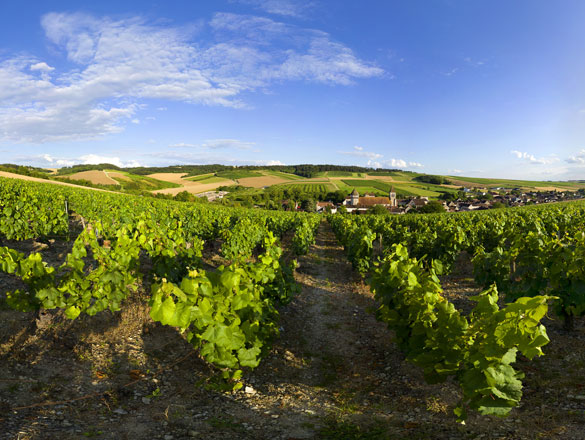

The vineyards of Bourgogne produce some great wines with a historical and international reputation. However, the region is not simply limited to its iconic appellations. In addition to its Village Premier Cru and Grand Cru AOCs, it also produces a range of wonderful Régionale and Village appellations to explore.
You will also find a full list of the Bourgogne’s Climats and lieux-dits on this page.
Check out the complete list of the 84 Bourgogne appellations.
However, your exploration has only just begun. Bourgogne wines have never before offered such high quality. Besides our range of internationally celebrated wines, try some of our lesser-known appellations where there are lots of surprises in store.
And for a fun way to find out more about the wines on offer, try out our “Which Bourgogne wine is right for me?” quiz, or check out Bourgogne Maps to take an interactive tour of the region.
Regionale Appellation ; Dénomination Géographique Complémentaire
VIGNOBLES DE CHABLIS ET DU GRAND AUXERROIS
31 juillet 1937
Whites - Chardonnay
Reds and rosés - Pinot Noir
Area under production*:
1 hectare (ha) = 10,000 m² = 24 ouvrées.
Whites: 57.87 ha
Reds and rosés: 35.5 ha
Average annual yield**:
1 hectolitre (hl) = 100 litres = 133 bottles.
Whites: 2,033 hl
Reds and rosés: 1,230 hl
*In 2022 **5-year average, 2017-2021
The Bourgogne Chitry Régionale appellation covers still red, white, and rosé wines produced in an area of the village of Chitry-le-Fort that was defined in 1993.

The whites are pale yellow in color with touches of silver yellow. The nose reveals aromas of hawthorn with touches of lemon, white-fleshed fruit, peach, and dill, In the mouth, the attack is smooth with fleshy fruit, underscored by lemony acidity. The finish is saline with a lingering sensation of freshness.
The reds are cherry red in color with touches of deep ruby. The nose evokes notes of cherry, raspberry, and toast, with violet and peony aromas. In the mouth, they are fresh and fruity, both fleshy and saline, some wines more structured than others.
The rosés are orangey pink with touches of silvery pink. The nose develops a floral register, mingling with notes of cherry, redcurrant, pomegranate, blackcurrant, licorice and pepper. In the mouth, they offer a balance between power and freshness, and are forthright, with a persistent finish.

Red: Its smooth and delicate tannic structure makes it the perfect accompaniment for a tuna filet cooked à l’unilatéral, meat wrapped in pastry, smoked shoulder of pork with lentils, roast pork with onions, paupiettes, pot-au-feu, grilled rib of beef, Cantal and Tomme-style cheeses.
Serving temperature: 15-16°C.
White: Its lemony freshness and fruity smoothness makes it the perfect partner for aperitifs with appetizers, served with saline or savory tapas, oysters, vegetable dishes, roasted fish, asparagus with herby creamed potatoes, sophisticated cold cuts, and snails. For the cheese course, try it with goat cheese with acacia honey.
Serving temperature: 10-12°C.
Rosé: Its fruity freshness and vinosity will showcase cold buffets, garden salads, seafood with chorizo, marinated oven-roasted fish, roast beef, frogs’ legs with herbs, and gnocchi with tomato.
Serving temperature: 10-14°C.

Chitry-le-Fort is located 13km to the southeast of Auxerre, on the right bank of the Yonne river. This charming Medieval village is notable for its fortified tower and church of Saint-Valérien. It is also a typical winegrowing village set out between cherry orchards, farmland, and 67 hectares of vines.

The village is tucked into an amphitheater open to the west, notched into by small valleys. The vineyard is located on slopes facing north-northwest and south-southeast, at between 195-300m above sea level. The soil is made up of limestone and marl-limestone formations from the Middle and Upper Jurassic.
